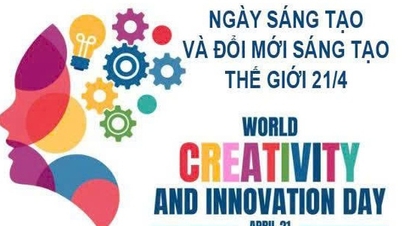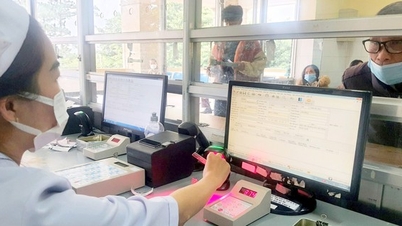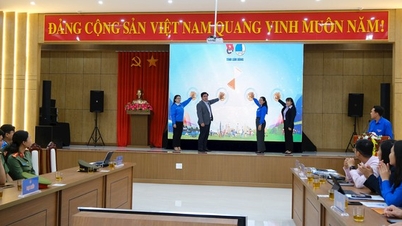Analyzing the role of Resolution 57, researcher Nguyen Xuan Tuan said that Resolution 57 is not only a resolution on science, technology and innovation, but also the key to paving the way for the fundamental transformation of the cooperative sector, from traditional management thinking to a digital economic model and knowledge economy.
If previously, cooperatives were considered a model to support small production, then under the spirit of Resolution 57, cooperatives are seen as "the nucleus of rural digital transformation" . Technology becomes the platform for connecting, sharing data and creating common values.
Resolution 57 clearly defines the task of promoting the application of digital technology in administration, production, business and market connection , considering science and technology as the most important pillar in collective economic development.
Practice shows that many pioneering digital cooperatives have made remarkable progress: reducing production costs by 15-20%, increasing productivity by 15-28% and expanding markets through traceability, e-commerce, and smart agriculture. According to Mr. Tuan, technology is not just a tool, but also an endogenous driving force of cooperatives in the new era.

In the spirit of Resolution 57, cooperatives need to promote the role of "digital transformation nucleus" in rural areas.
From the "technology pillar", Resolution 57 also creates a foundation for related resolutions to operate harmoniously: increasing institutional flexibility (Resolution 66), promoting the private economy (Resolution 68), and supporting digitalized global trade (Resolution 59).
A notable proposal of Mr. Tuan is the electronic cooperative model, which clearly demonstrates the thinking of integrating technology, science and institutions.
This model allows millions of individual business households to share common digital, accounting, legal and financial infrastructure, without having to quickly transform into enterprises. E-cooperatives both realize Resolution 57 and effectively connect with the spirit of Resolutions 66 and 68, while opening the door for production households to participate in international markets through e-commerce, traceability and transparent data.
According to Mr. Nguyen Xuan Tuan, the breakthrough point of Resolution 57 is to change the development mindset from doing agriculture with experience to doing economics with technology and data.
He also cited Prime Minister Pham Minh Chinh's directive in recent foreign affairs activities, that institutional reform must be closely linked with science and technology, taking it as "a new driving force for sustainable development".
Vietnam's learning from the experiences of leading digital transformation countries such as Estonia, Sweden, and France shows that the spirit of Resolution 57 has moved beyond theory to enter national governance.
Mr. Nguyen Xuan Tuan analyzed, "When institutional thinking meets technological thinking, we can save billions of dollars each year from administrative operating costs, while improving social productivity." Electronic cooperatives are the model that materializes that combination.
Currently, the country has more than 8 million individual business households, most of which operate informally and have difficulty accessing credit and support. Meanwhile, the number of newly established cooperatives each year remains low, revealing the institutional gap between individual households and enterprises.
When households are "digitized" and "connected" through e-cooperatives, community management capacity increases, compliance costs decrease, and labor productivity improves. This is the path for Vietnamese cooperatives to "turn into dragons" with technology , like the experiences of Korea and Japan in modernizing agriculture.
From the perspective of researcher Nguyen Xuan Tuan, Resolution 57-NQ/TW is not only a political document, but also a blueprint for the future of cooperative economy, where science - technology - institutions operate in a common ecosystem, creating new momentum for cooperatives in the digital age.

Digital transformation is the inevitable path for cooperatives to reach new heights and improve competitiveness.
Source: https://mst.gov.vn/nghi-quyet-57-xay-nen-cho-he-sinh-thai-cong-nghe-hop-tac-197251118191138752.htm


![[Photo] Prime Minister Pham Minh Chinh and his wife meet the Vietnamese community in Algeria](https://vphoto.vietnam.vn/thumb/1200x675/vietnam/resource/IMAGE/2025/11/19/1763510299099_1763510015166-jpg.webp)
![[Photo] The Standing Committee of the Organizing Subcommittee serving the 14th National Party Congress meets on information and propaganda work for the Congress.](https://vphoto.vietnam.vn/thumb/1200x675/vietnam/resource/IMAGE/2025/11/19/1763531906775_tieu-ban-phuc-vu-dh-19-11-9302-614-jpg.webp)

































![[Photo] General Secretary To Lam receives CEO of AP Moller-Maersk Group, Denmark](https://vphoto.vietnam.vn/thumb/1200x675/vietnam/resource/IMAGE/2025/11/18/1763462288958_a3-bnd-8222-2510-jpg.webp)
![[Photo] General Secretary To Lam receives Slovakian Deputy Prime Minister and Minister of Defense Robert Kalinak](https://vphoto.vietnam.vn/thumb/1200x675/vietnam/resource/IMAGE/2025/11/18/1763467091441_a1-bnd-8261-6981-jpg.webp)








































































Comment (0)